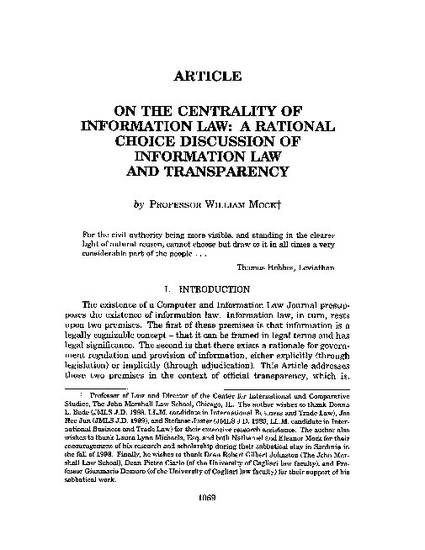
The purpose of this Article is to establish the importance of information law and to encourage its further study. By applying information technology theory, economic theory and, and political theory insights, the Article examines the centrality of information law in open societies. Information law rests upon two premises. The first of which is that information is a legally cognizable concept- that it can be framed in legal terms and has legal significance. The second premise is that there exists a rationale for government regulation and provision of information, either explicitly or implicitly. Transparency is a flexible concept used in a variety of contexts, from financial disclosure requirements to anti-corruption measures. Transparency is coming to be recognized as essential to good governance and the establishment of the rule of law within ordered societies. Effective policies of governmental transparency not only promote, but are essential to good governance, including citizen participation, official accountability, clean government, and law.
